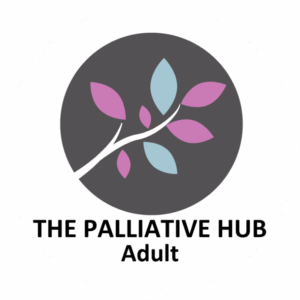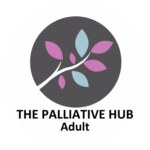Home » Palliative Care Journey » Care » Self Care
Self-Care
Self-care means looking after your physical and mental wellbeing. If you have a long term condition this might include issues such as making changes to your diet, considering different types of exercise or different types of medication you may need to take. Self-care also means staying active by doing things that are important to you, such as gardening, seeing friends and family, going on holiday, or continuing to work, if possible. It involves looking at what you can do and want to do, rather than what you can’t do.
When a person receives a life-limiting illness diagnosis, it often marks a challenging time in their lives. Self-care becomes an important aspect of maintaining both physical and emotional wellbeing and it can significantly impact their quality of life. Engaging in self-care can give people a sense of control during a time when they might feel powerless. By taking small steps to care for their health and wellbeing, people can feel more empowered in their journey which can boost confidence and sense of self autonomy.
Self-care may look different to different people depending on their priorities and preferences. Some examples of what self-care may look like:
- Physical – self-care practices like maintaining proper hydration, balanced nutrition, making changes to your diet and appropriate exercise which may help alleviate symptoms like fatigue, pain and discomfort.
- Emotional – self-care practices such as mindfulness, relaxation techniques and journaling can help people manage emotional stress, anxiety and find a sense of inner peace.
- Social – maintaining connections with loved ones, engaging in meaningful conversations and participating in enjoyable activities such as gardening can provide emotional support and prevent isolation.
Receiving a diagnosis of a life-limiting illness can be overwhelming, it can take time to emotionally adjust to the news, to get your head around what this means and readjust your coping. It is normal to worry about many things, including:
- possible symptoms,
- how you have/are changing (physically and emotionally),
- practical issues, such as finances,
- people who are important in your life,
- the future.
The effects of the illness or its treatment can cause fatigue, anxiety or depression, altered body image and loss of self-esteem. You may feel unable to cope at times.
Reflect on your strengths and how you coped with other difficulties in the past. Remember the activities that would normally help sustain your wellbeing and consider how you can draw on these activities now. It is normal to feel a sense of loss and grief at all that has changed in your life. It is important that you allow space to express these difficult thoughts and feelings.
Identify someone who you can begin to talk to such as a friend or family member. Sometimes it can be difficult to share your innermost thoughts and feelings with those closest to you, or to answer questions about your illness or the future, particularly from children. Your healthcare team will have people whom you can talk to. This can include individual and family support, counselling, practical supports and stress management. Remember, conversations take place over time and not everything needs to be discussed at once.
By practicing self-care people are more likely to experience a sense of purpose, comfort and joy even during a difficult time.
If you are a caring for someone with palliative care needs, please follow this link to find out more information on the Palliative Hub – Carers: Caring for Carers


